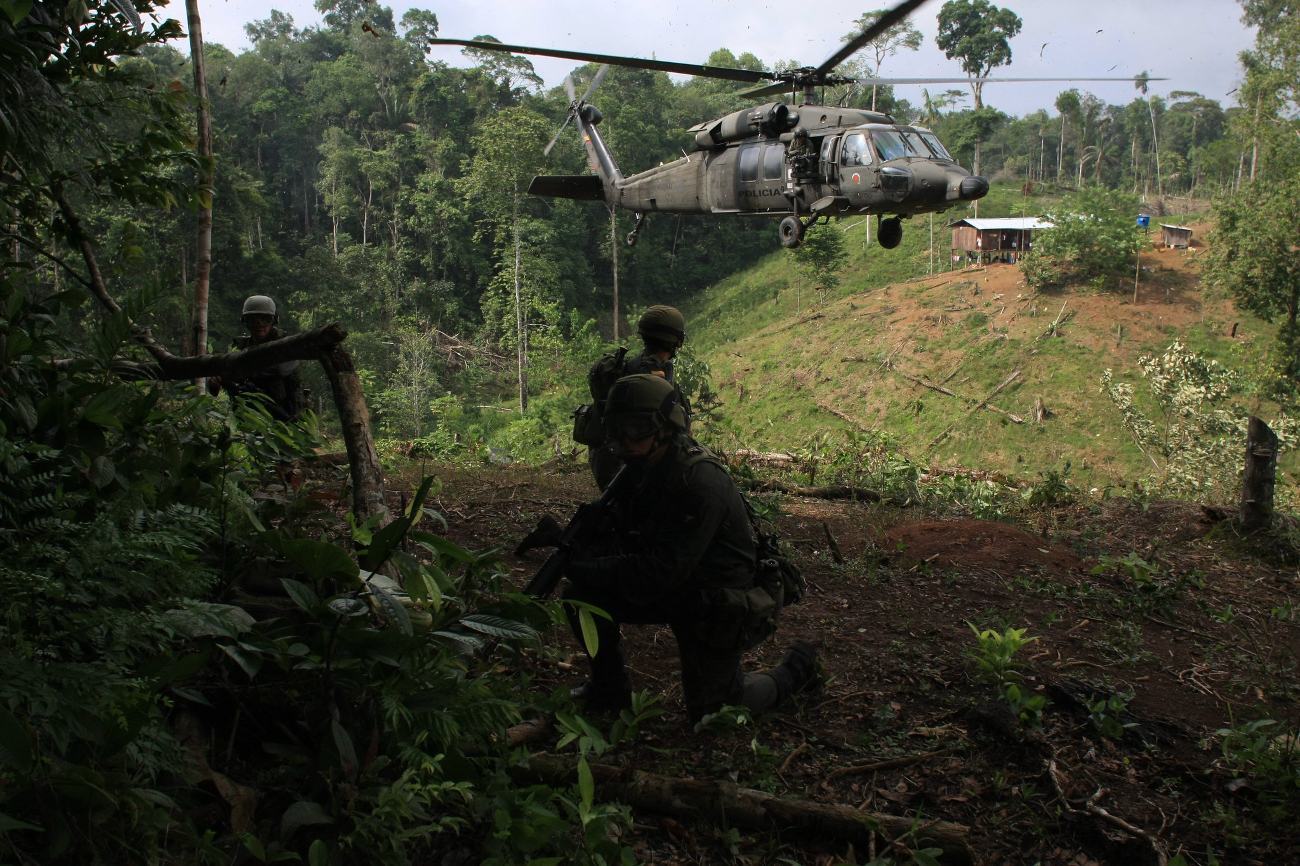Colombia set a new record for coca production in 2022. This isn’t surprising, when the country is established as the world’s leading cocaine producer, followed by Peru and Bolivia. But the context has seemingly transformed, when the president who took office in August that year says he wants to end the drug war, emphasizing poverty and violence reduction, not crop eradication and enforcement.
According to a United Nations report released September 11, 2022 saw Colombia’s highest-ever coca crop yield. Over 568,000 acres of land—an area more than twice the size of New York City—were planted with coca, a 13 percent increase from 2021. The estimated yield of coca leaves was 1.54 million tons. The country’s total output of the cocaine that’s produced from coca is estimated at 1,915 tons—another record, and a 24 percent increase. However, coca cultivation had increased by a much larger 43 percent in 2021.
The latest increase in crop acreage was primarily driven by regions that border neighboring countries: the department of Putumayo, bordering Ecuador and Peru, the neighboring department of Nariño, and in the north, Norte de Santander, bordering Venezuela. Significantly, about half of all lands used to grow coca are in “special management areas” which include national parks, forest reserves, Indigenous reservations and recognized Afro-Colombian communities.
“Every dollar we dedicate to cutting the supply increases the price.”
The UN report also details “counter-narcotics” efforts. In 2022, cocaine seizures and lab shutdowns decreased compared to 2021. But seizures of cocaine paste—the unrefined version of the drug—increased by 20 percent.
President Gustavo Petro, who in June 2022 became the first leftist elected to the office, has stated clearly that he wants to end the drug war. In his inaugural address, he called on citizens to “exchange failure for a success that allows Colombia and Latin America to live in peace”.
More recently, Petro repeated his message at the Latin American and Caribbean Conference on Drugs in Cali, Colombia, on September 9. “It is time to rebuild the dream and the hope,” he said, “not by repeating such bloody and ferocious wars, so mistaken, like the poorly named ‘War on Drugs,’ treating drugs like a military problem and not like a public health problem.”
“Every dollar we dedicate to cutting the supply increases the price,” he continued. “As it goes up, narco-traffickers earn more money to purchase rifles, armored vehicles, and missiles, and to buy off politicians, senators, generals, judges and presidents.”
In January this year, President Petro announced a change in policy on coca. His administration, he said, will deprioritize forced eradication: relying on soldiers and police to destroy coca plantations, including with aerial spraying of the toxic chemical glyphosate. The National Police accordingly reduced its 2023 eradication target by 60 percent, from over 123,500 acres to 49,400.
In December 2022, Nestor Osuna, Petro’s justice minister, had explained the rationale. “We’re going to give oxygen to certain activities and to asphyxiate others: oxygen to the weakest links in the chains, to the coca farmers, and asphyxia to the traffickers, to the money launderers and mafias,” he said.
Within the first two months of 2023, coca eradication was down 93 percent from the year prior, according to Bloomberg.
Petro’s administration unveiled a $250 billion plan that aims to reduce poverty and transfer 7.4 million acres of land to poor farmers.
Petro’s approach includes improving health care, education and infrastructure in impoverished rural regions, and giving coca farmers attractive and legal alternative livelihoods.
“If we offer a sustainable alternative to the farmers harvesting coca, they will take it,” Osuna told CNN in a November 2022. “It is true that right now no agricultural product can compete with the revenue coca makes, but it’s also true that coca remains illegal, and we believe the farmers have signaled us they would rather work under the law, even at lower margins, than in illegality.”
Petro faces servere challenges around coca going forward, including ending the violence and killings that target rural and Indigenous populations. Success hinges, in part, on his administration’s implementation of the 2016 peace deal with the right-wing Revolutionary Armed Forces of Colombia (FARC), as well as maintaining a ceasefire and peace with the left-wing National Liberation Army (ELN).
But to provide economic support to coca farmers, the federal government will have to address land reform and other systemic barriers. In February, Petro’s administration unveiled a $250 billion, four-year development plan that aims to reduce poverty and transfer 7.4 million acres of land to poor farmers for agricultural use. His administration had previously purchased this amount of land from private owners, with the goal of relocating thousands of coca farmers to grow new crops.
Another major challenge could be Colombia’s relationship with the United States. For decades, the US has heavily backed the country’s drug war, best exemplified by the 2000 “Plan Colombia” which involved significant military aid.
That initiative came to an end in 2015, with the onset of the FARC peace talks. But the US remains invested in Colombia’s efforts to stop coca production. As a new report has demonstrated, Colombia is by far the top recipient of US and international foreign “aid” for “narcotics control.” If the Petro administration truly breaks with global drug-war orthodoxy, the US has both the power and the inclination to make life difficult.
Photograph of Colombian forces after the burning of an alleged coca lab in 2008, by the National Police of Colombia via Flickr/Creative Commons 2.0





Show Comments